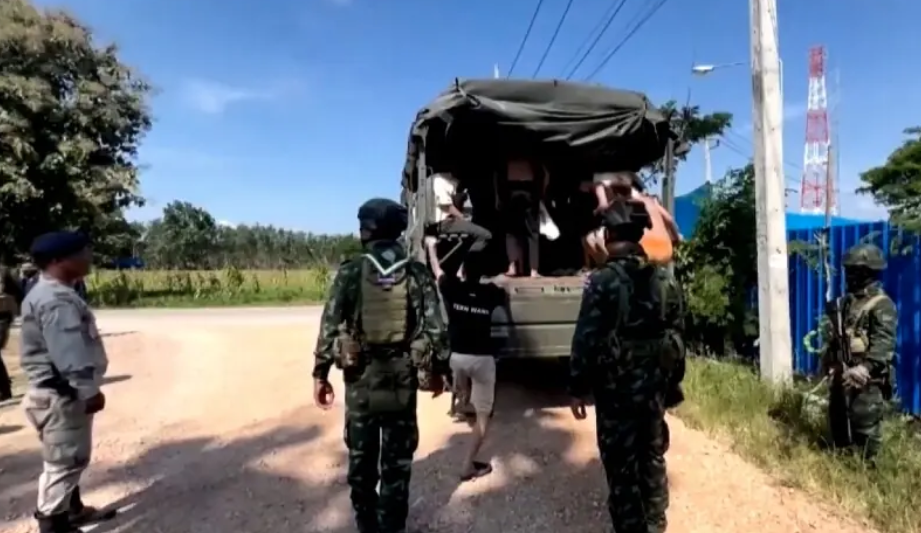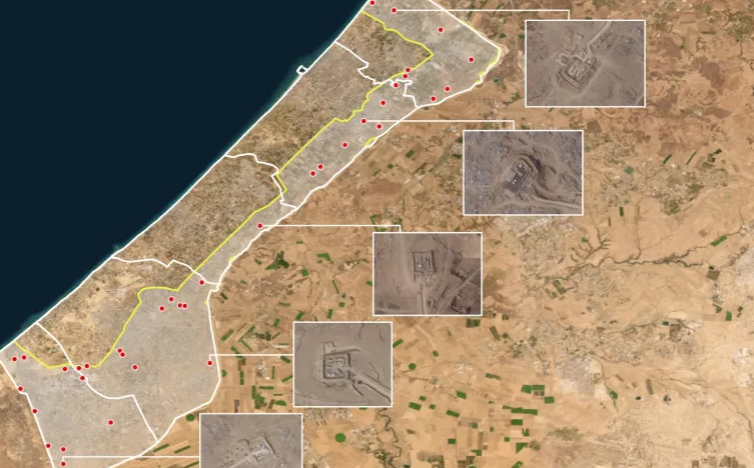WORLD NEWS

Nearly 700 foreign nationals, including Pakistanis, have fled Myanmar and crossed into Thailand following a military operation against the KK Park cybercrime compound, notorious for its human trafficking and online fraud networks.
The Thai army said on Thursday that 677 people — 618 men and 59 women — were detained after crossing the border into Tak province. Authorities confirmed that Myanmar’s military had taken control of KK Park, prompting the mass exodus.
The detained individuals are undergoing legal screening to determine whether they are victims of human trafficking or illegal entrants, officials said. Thailand’s army assured that all actions are being conducted “in line with legal and humanitarian principles,” and additional detention facilities have been readied if needed.
🌐 Who Are the Fleeing Nationals?
According to Thai authorities, the group consists mainly of Chinese and Indian nationals, alongside smaller numbers from Pakistan, Vietnam, Indonesia, and several other countries.
Myanmar’s KK Park, located near the Thai border, is infamous for operating cyberscam syndicates run by Chinese criminal gangs under protection from local militias allied with Myanmar’s military.
💻 Epicenter of Cybercrime
Since the COVID-19 pandemic, the border zones between Thailand, Myanmar, Laos, and Cambodia have become hotspots for online fraud, where trafficked workers are forced to carry out scams ranging from romance frauds to investment cons.
The United Nations estimates that these operations have trafficked hundreds of thousands of people and generated billions in illicit profits.
A crackdown launched earlier this year led to around 7,000 workers being repatriated, and Thailand imposed cross-border internet restrictions. However, an AFP investigation recently found that new buildings are still under construction in several scam compounds — many equipped with Starlink satellite internet receivers, allowing continued global connectivity.
🚨 Humanitarian and Legal Action
Sawanit Suriyakul Na Ayutthaya, deputy governor of Tak province, confirmed that hundreds crossed the Moei River into Thailand overnight. Many arrived with suitcases and backpacks, suggesting an organized escape.
Thai immigration police are providing humanitarian assistance while screening individuals to determine their status. Officials expect more people to cross as Myanmar’s military intensifies its operations in the area.
💰 Billion-Dollar Scam Industry
The cybercrime syndicates in the region reportedly conned victims out of $37 billion in 2023, according to a UN report. Experts say Myanmar’s military has long turned a blind eye to the scam hubs, which fund its allied militias — key partners in fighting anti-junta rebels.
Under pressure from China, Myanmar has attempted limited crackdowns, but analysts believe these are symbolic efforts meant to appease Beijing without disrupting profits.
In Thailand, the scandal has already led to political fallout: Deputy Finance Minister Vorapak Tanyawong resigned this week following allegations of links to Cambodian scam operations.
Meanwhile, Cambodian authorities have detained dozens of Chinese and South Korean nationals connected to cyberscam networks, and Thailand’s Anti-Money Laundering Office has seized assets worth 70 million baht ($2.1 million) from Cambodian tycoon Ly Yong Phat, who was sanctioned by the U.S. government for human trafficking.
As Myanmar’s conflict rages and criminal networks adapt with new technology, regional governments are struggling to stem the flow of human trafficking, cybercrime, and cross-border corruption that continue to plague Southeast Asia’s digital underworld.




